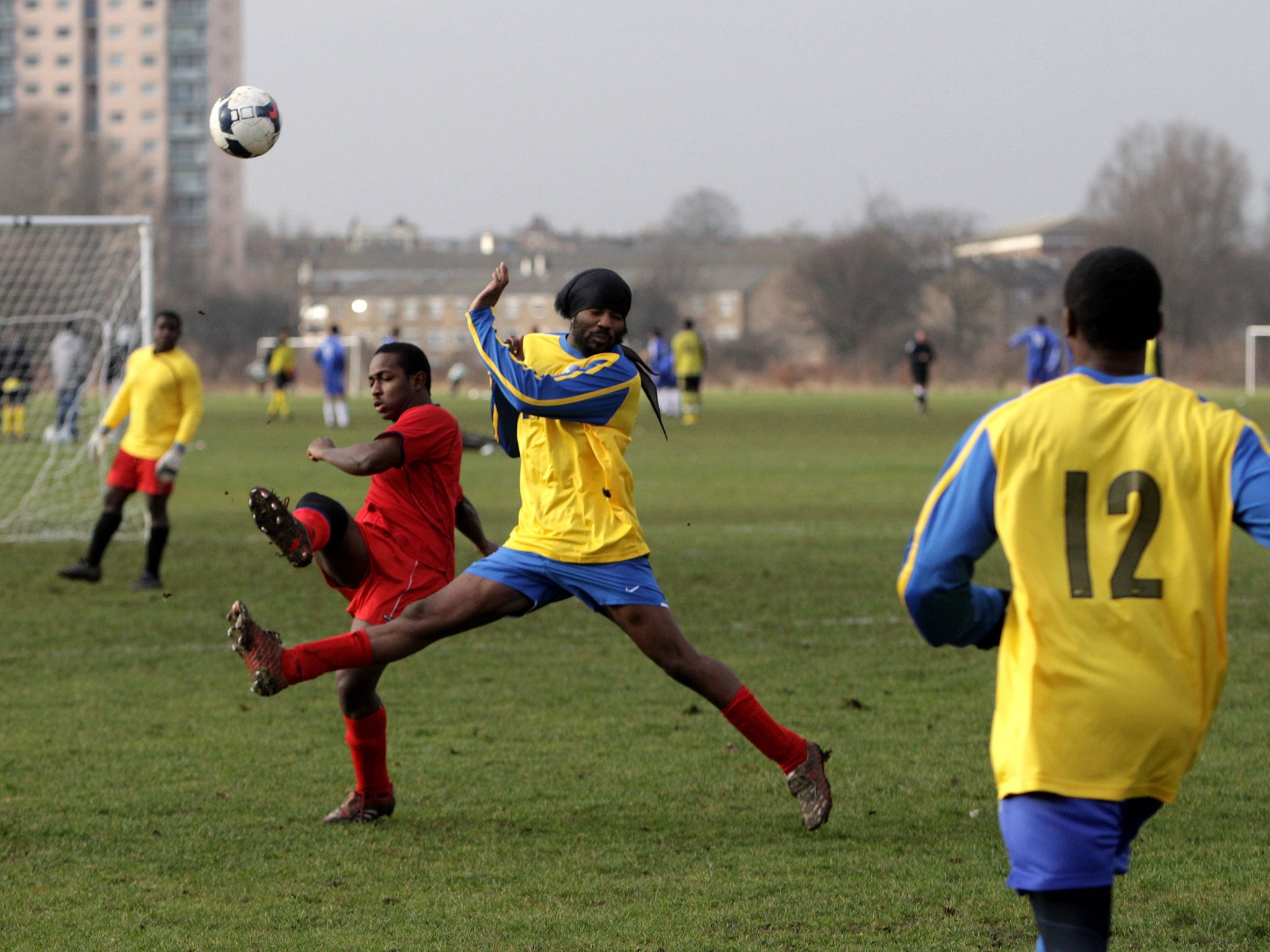Using sport to tackle deprivation is a winner
Wayne Rooney earns more per year than the FA hands to the Football Foundation, the official grass-roots charity

For junior footballers, the rent is too damn high. Walsall Council put up the cost of hiring a pitch by 300 per cent last year, and similar price hikes have been reported in Manchester, Newcastle and London. When the Head of the FA Katy Simmons talks about the cost of facilities pricing amateurs out of the game, as she did last week, she could have had any number of pricey, waterlogged pitches in mind.
“Austerity measures,” said Simmons, are to blame. First the Government cuts local authority budgets. Next local authorities slash subsidies for sport. Finally the local pitch goes down in quality, or up in price, and your kid with a childhood to waste finds it easier to watch football on TV than find a game outside.
Is this just one of those uncomfortable but inevitable consequences of the austerity-programme, which the Tories and, now, Labour are committed to? Not entirely. Two options present themselves. The first is to strong-arm the Premier League into looking beyond its cash cow to the barren fields of Britain. A campaign, Save Grass Roots Football, called on the Coalition to force the Premier League to commit a greater slice of the £3bn raised from the sale of TV rights to the uglier side of the beautiful game. Nothing came of it. In a perfect world, the League would cough up. But when Wayne Rooney comes into your office wanting a new contract, and your season rests on his shoulders, you need every penny you can get. (Lest we forget, he earns £300,000 a week: and more per year than the entire £12m the FA hands to the Football Foundation, the official grass-roots charity).
The second option is to convince cash-strapped local authorities that sport isn’t a waste of money. How do you do this? The answer entails a long overdue rethink of what grass-roots sport is for. As part of the Olympic Legacy, the Government has set itself the task of raising the number of people playing each week. Sadly, the numbers are falling away – hence the £1.6m funding cut the FA received last month. Clearly, someone needs to get out the tactics board.
A report by Sport England, who allocate Government funding, notes that local authorities no longer want to fund “sport for sport’s sake”. Good. Instead they want to use it to support social objectives, such as reducing “deprivation”. Even better. I used to work for a London charity, Greenhouse, that puts that model into practice every day – providing kids in tough areas like Peckham with a package of sports coaching and mentoring designed to boost wellbeing off the field. Sport is a Trojan horse for social work. Throwing money at participation targets has produced next to nothing, so how about investing more in programmes that take a similar tack?
Correction: This piece was amended to reflect the fee subsidy provided by Burgess Park, Peckham to community renting of its football pitch. A £162 fee is paid by non-locals - a fee that drops to £86.40 for community games. Expensive for some, but not an insurmountable hurdle.

Join our commenting forum
Join thought-provoking conversations, follow other Independent readers and see their replies